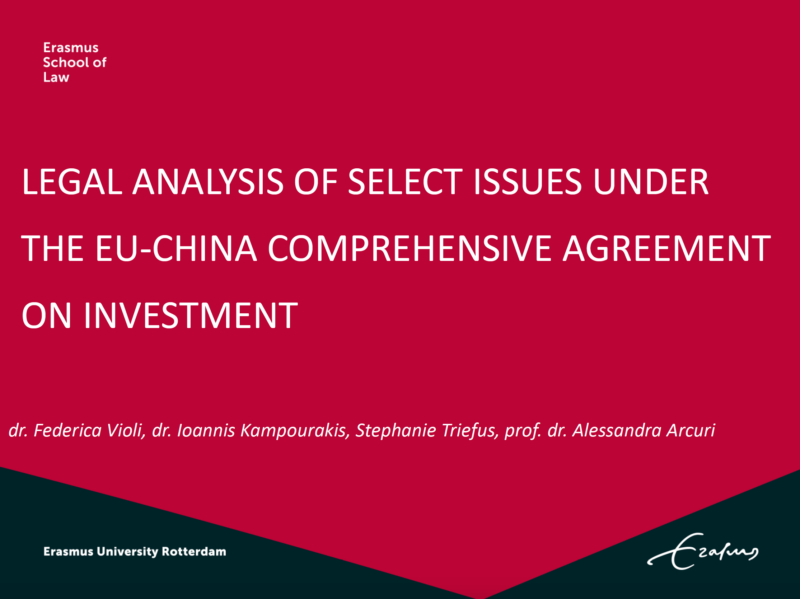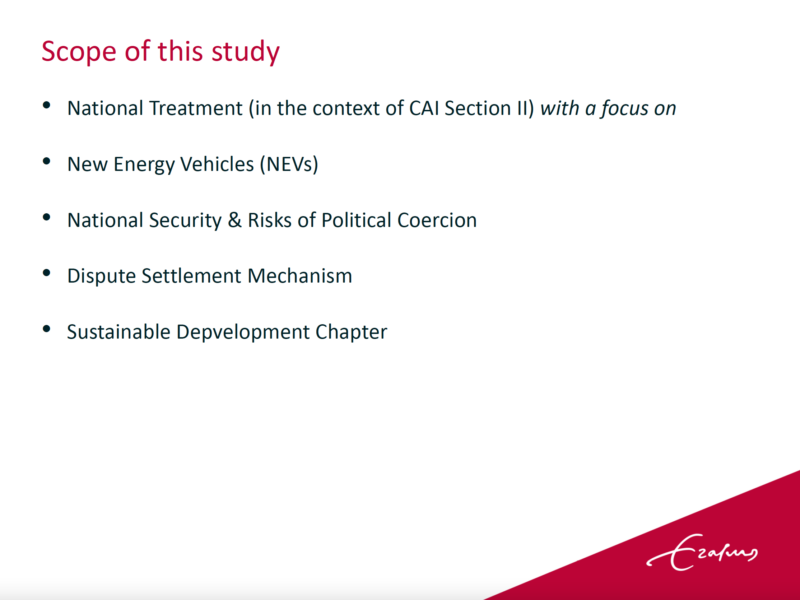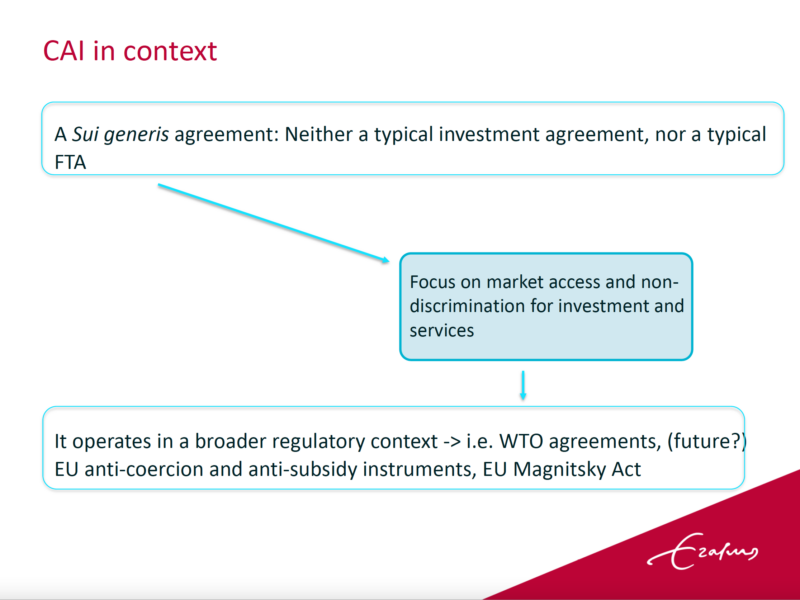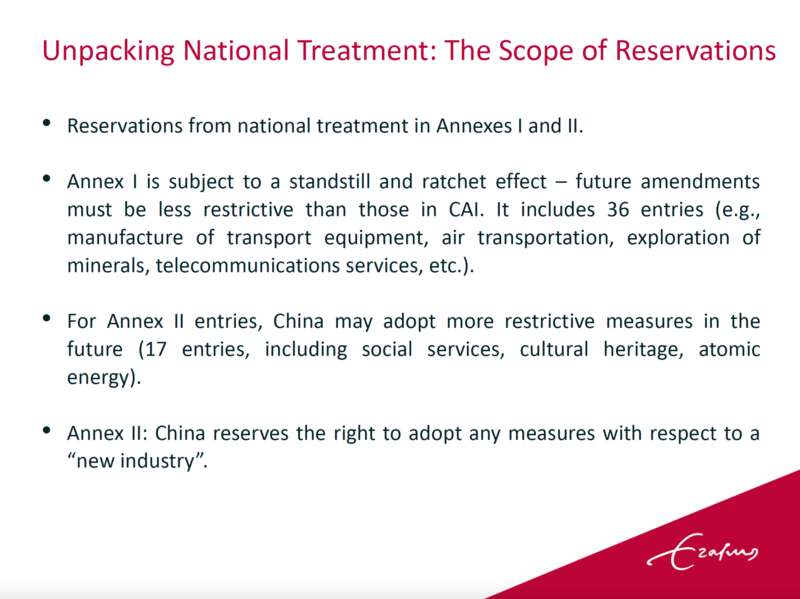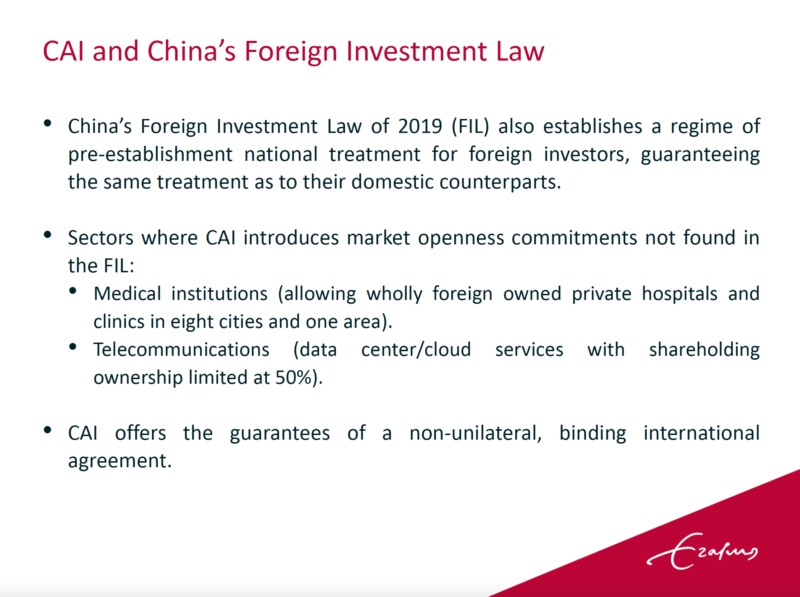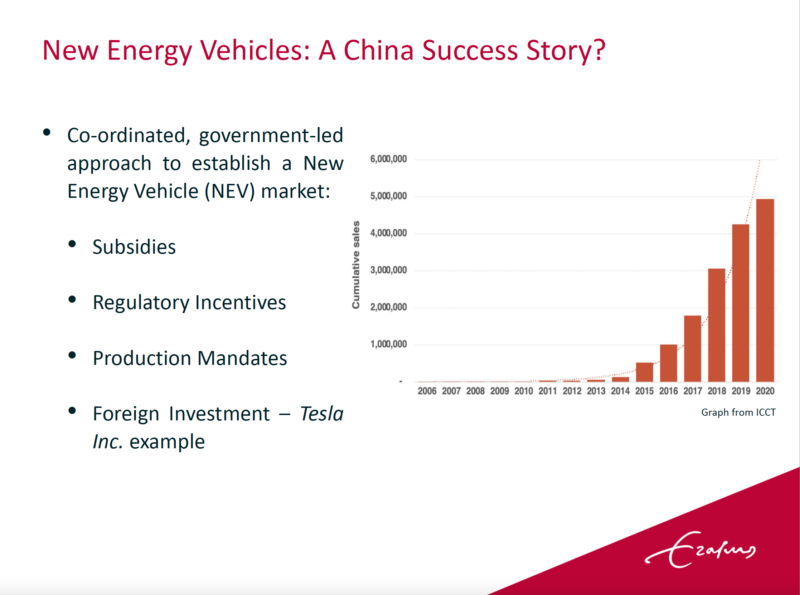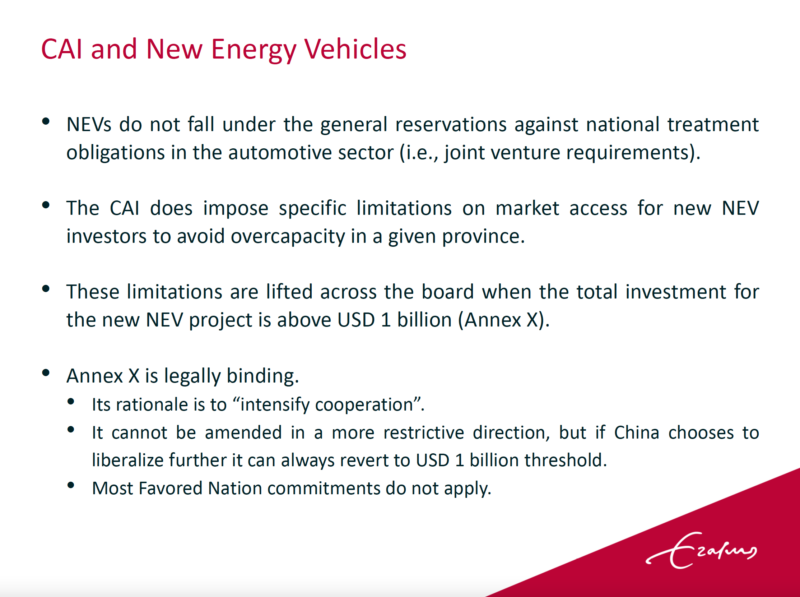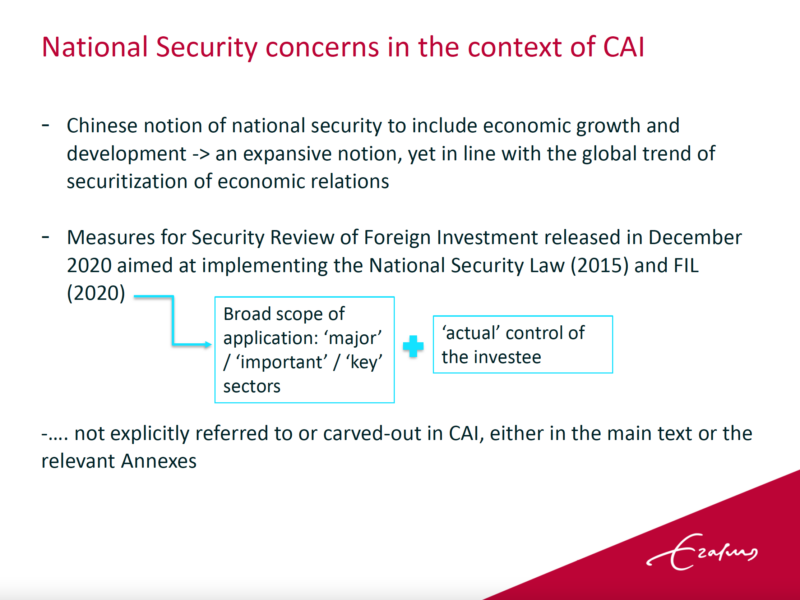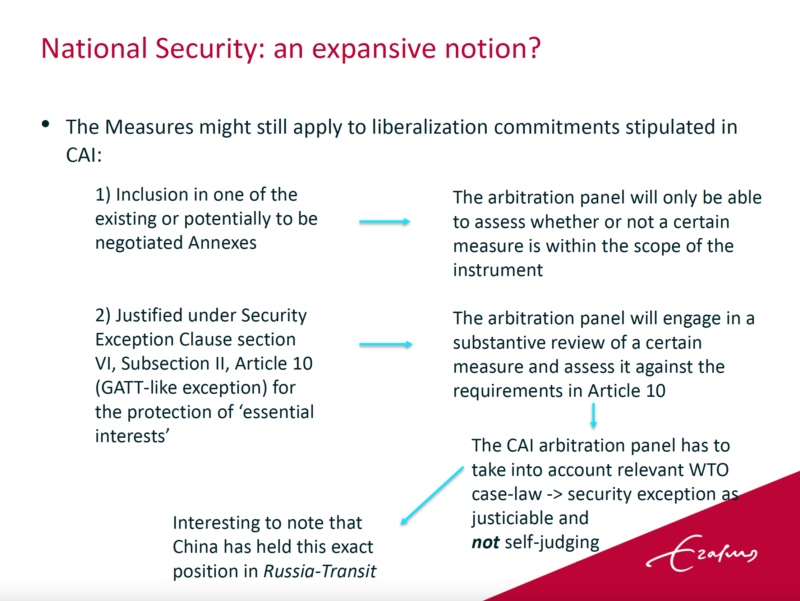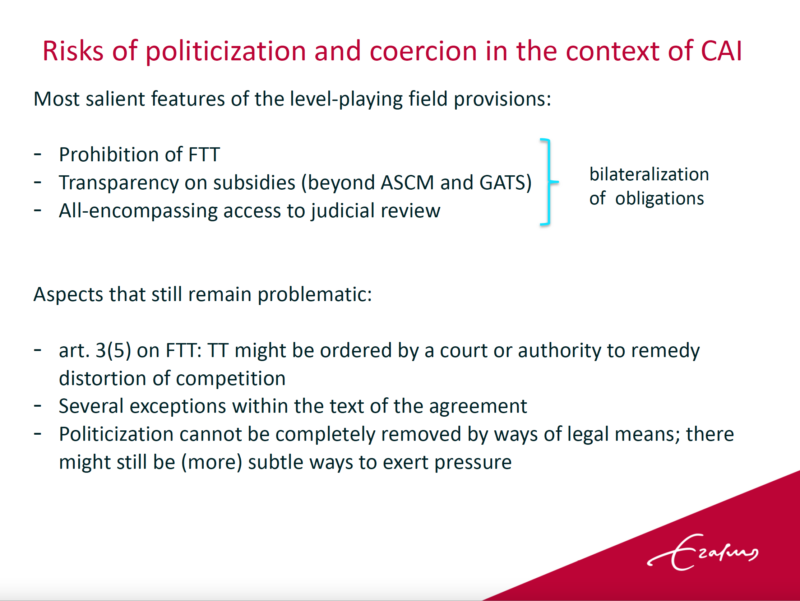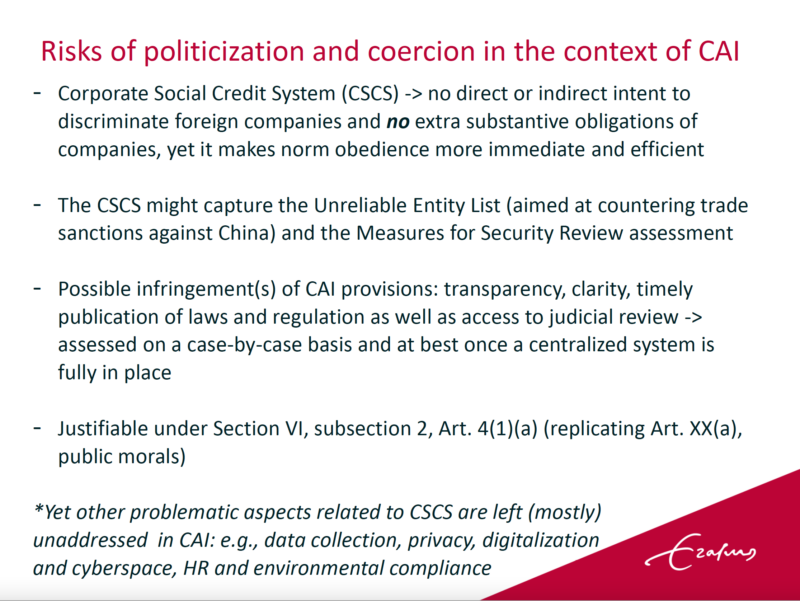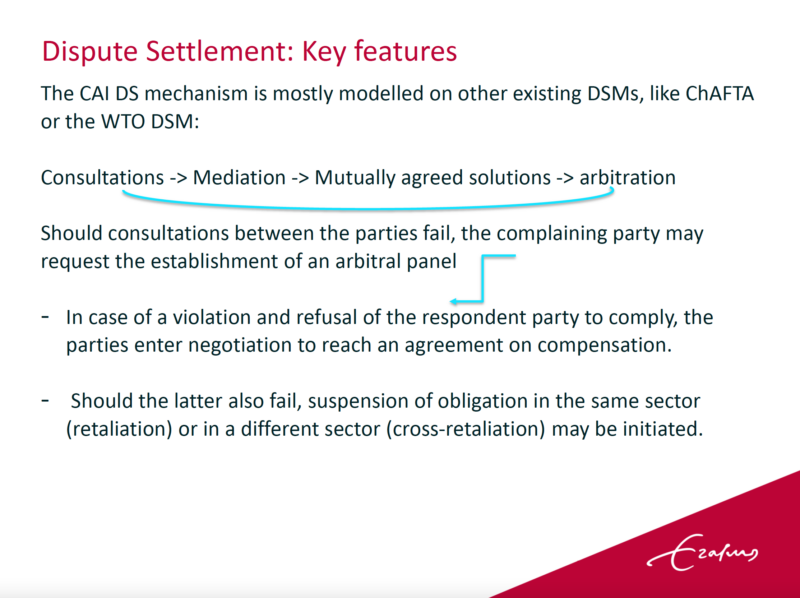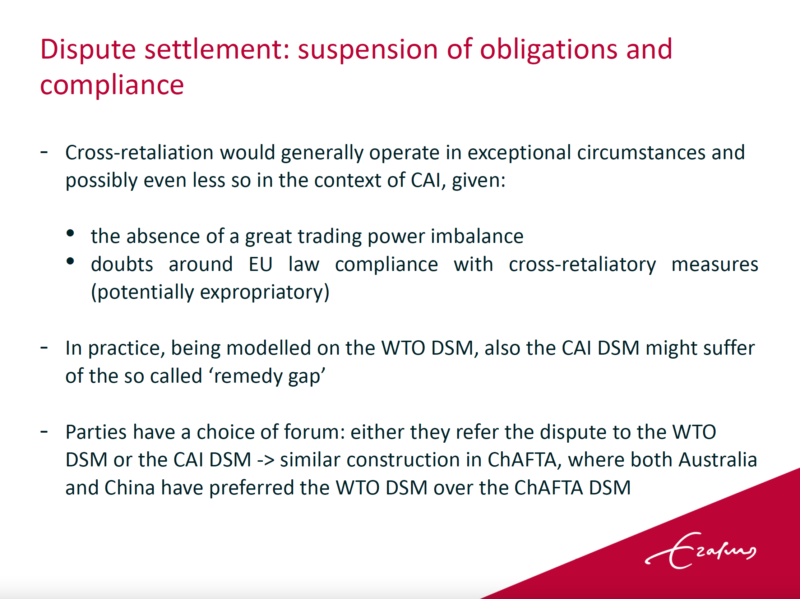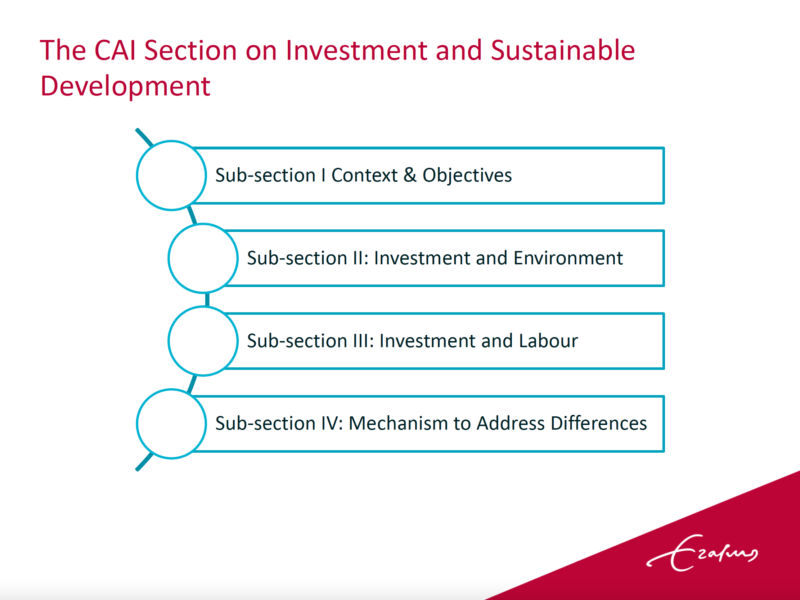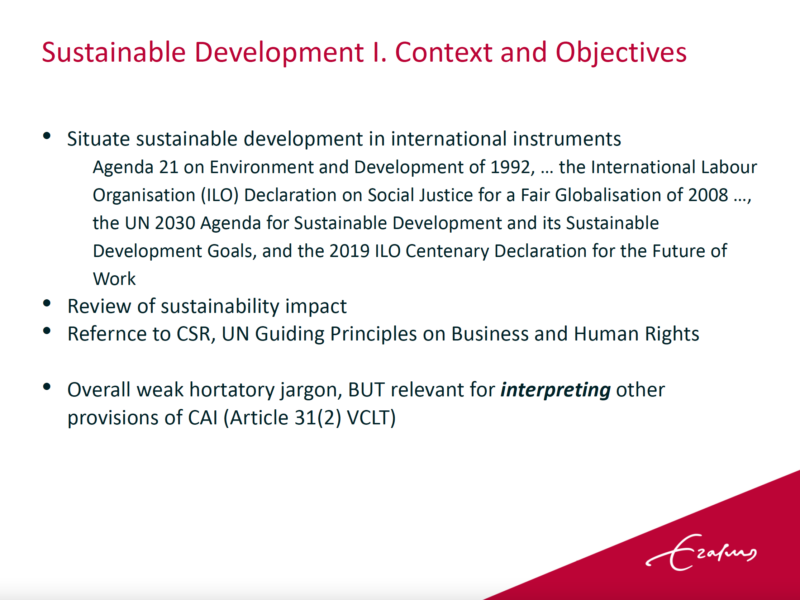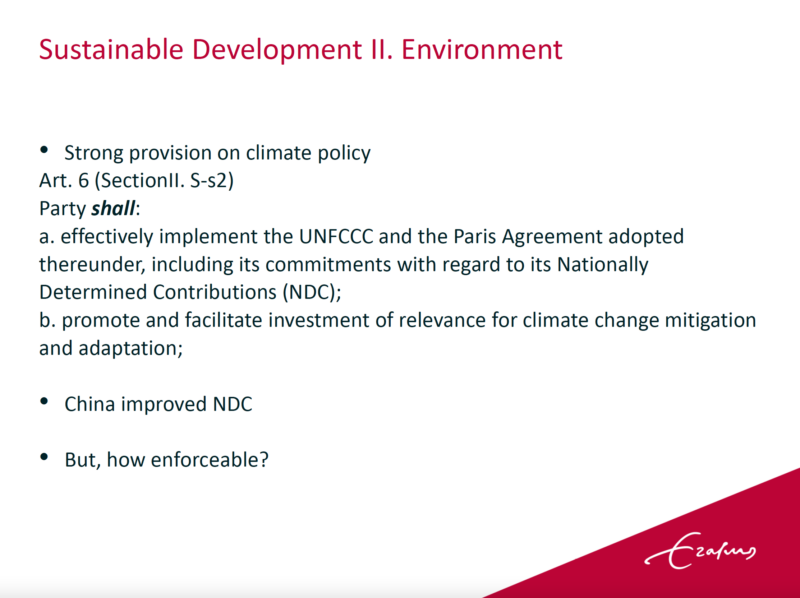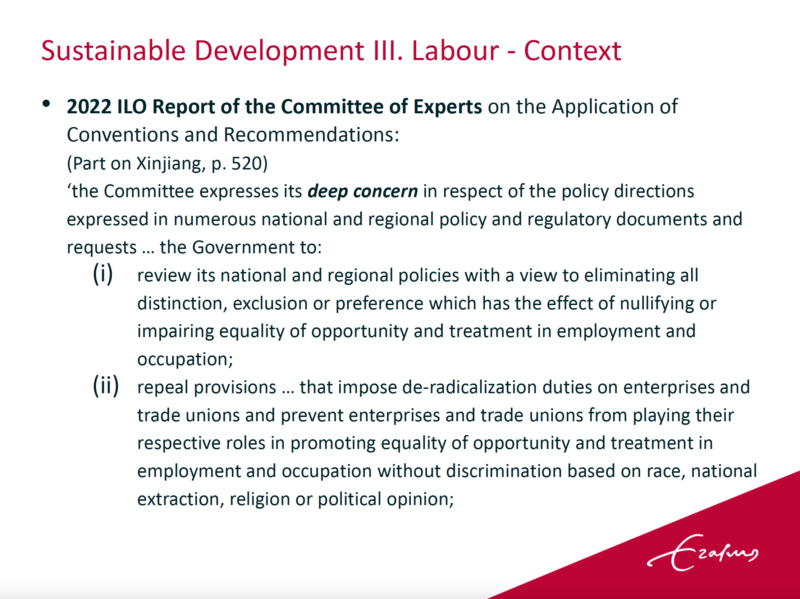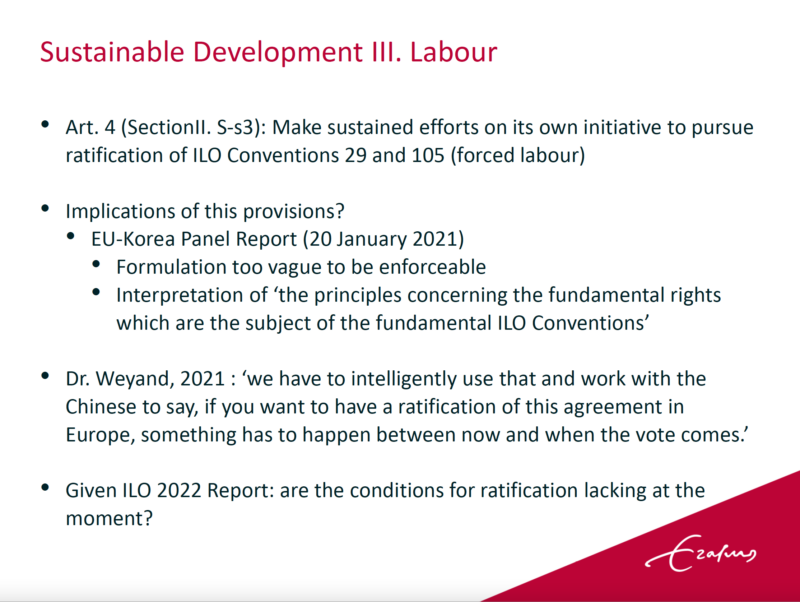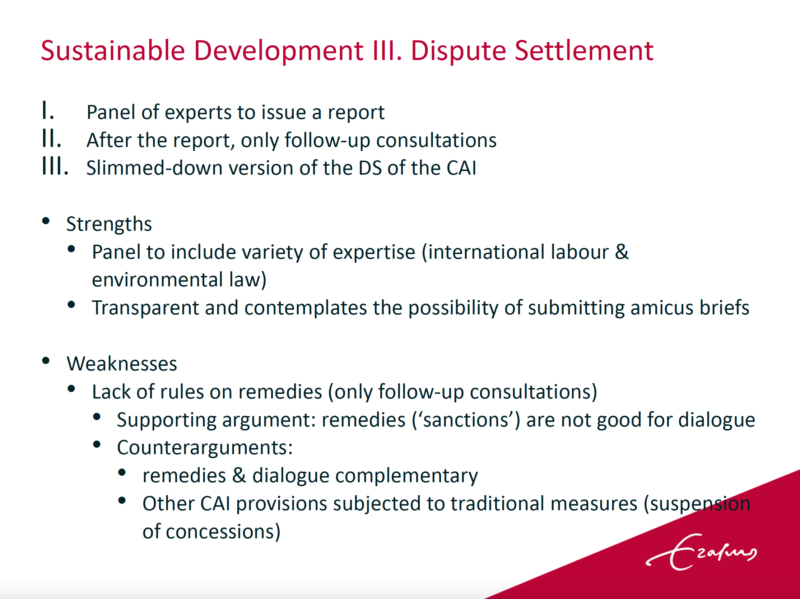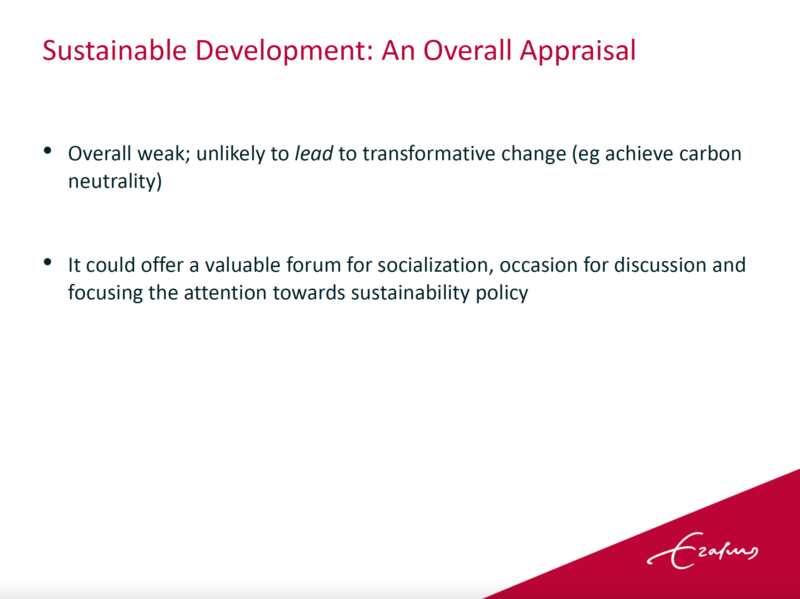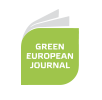Four distinguished experts from the Erasmus School of Law at the University of Rotterdam, authors of the study, were available for a discussion of select issues of the CAI:
– Alessandra Arcuri, Professor of Inclusive Global Law and Governance
– Federica Violi, Associate Professor in International Law
– Ioannis Kampourakis, Assistant Professor in Law and Markets
– and Stephanie Triefus, PhD Candidate in the field of human rights and international investment law.
Over the past months, these four have taken a closer look at the CAI from their respective expertise and assembled their findings in a study for the Greens/EFA group.
China and the EU have over many years worked for the conclusion of the agreement in principle of the CAI, which finally happened at the end of the German EU Presidency in December 2020. Despite changing geopolitical circumstances in the course of 2021, there are actors from politics and business who are still advocating the CAI ratification as a step towards a closer trade and investment relationship with China. It is therefore important to have a closer look and shed some light at selected legal provisions which the CAI contains.
In particular, we want to look at the national treatment commitments (with a focus on new energy vehicles, NEVs) and the extension thereof, also in light of Chinese relevant domestic law. We will also discuss national security matters within the legal framework of CAI and the Chinese National Security Law. The study does examine the dispute settlement mechanism enshrined in the treaty and the legal viability of retaliatory and cross-retaliatory measures, both under CAI and EU law. The study assesses how far the corporate social credit system (CSCS) interacts with CAI and with what consequences. And last but not least, we will learn from the authors how the Sustainable Development Section of CAI lacks stringent obligations, also in light of both EU and China’s carbon neutrality and sustainability objectives.
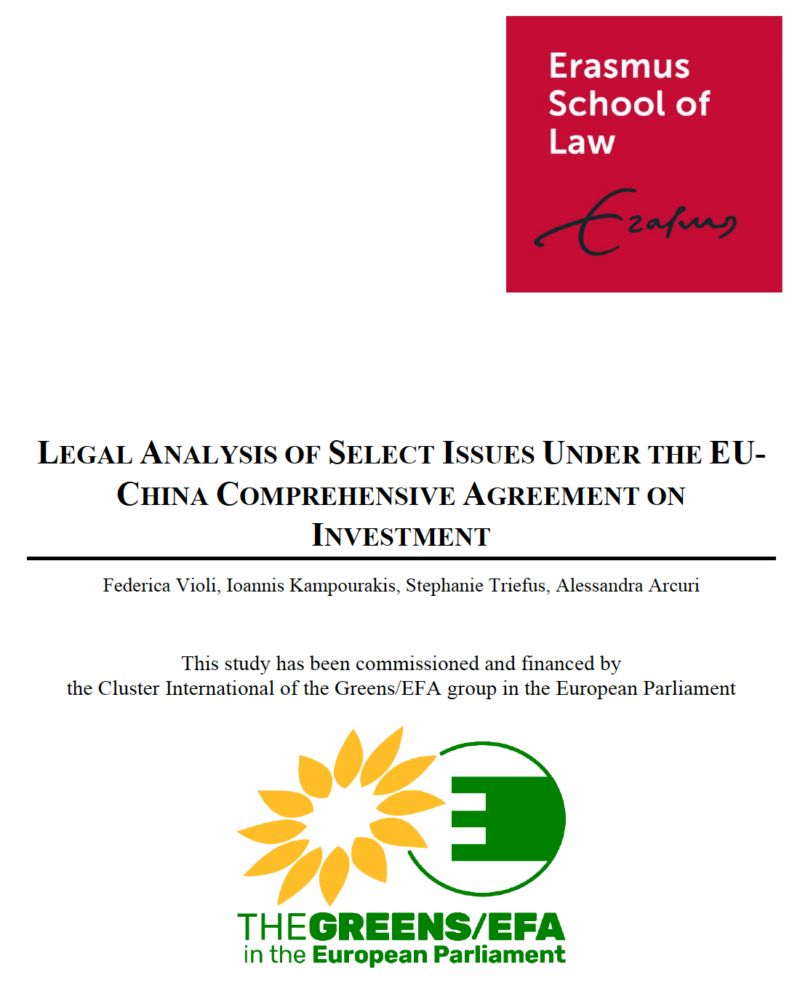
Powerpoint Presentation
P.S.: Also, please feel free to check out other studies we have already commissioned on different aspects of the CAI here:
– A first assessment of political and legal implications of CAI (PISM, April 2021)
– A short paper on standardisation clauses (Dr. Tim Rühlig, October 2021)
– A study on NGO clauses and the civil society blindspot in the CAI (Dr. Bertram Lang, December 2021)


